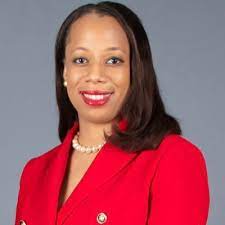
While national security can at times feel distant from everyday Americans’ lives, Asha Castleberry believes it impacts us in more ways than people think.
In her book Why National Security Matters, Castleberry draws from her experience as a senior adviser in the Bureau of Near Eastern Affairs under the Biden administration, her diplomacy work through the United Nations and her numerous other experiences in foreign policy to help readers engage with the complicated matter of national security.
“I wrote Why National Security Matters because I saw a growing rejection of global engagement,” she said to Black Press USA. “But we’re more interconnected than ever — through cyber threats, pandemics and climate change.”
Castleberry will speak as part of the African American Heritage House Lecture Series at 3:30 p.m. today in the Hall of Philosophy. With Week Eight’s theme “The Middle East: The Gulf States’ Emerging Influence,” Castleberry’s voice and expertise will enhance the conversation.
A U.S. Army veteran, Castleberry has taught at Fordham, George Washington and Baruch College and has been featured on several national and international news outlets. Currently, she serves as an adjunct fellow for American Security Project.
With the recent U.S. strikes on Iranian nuclear facilities, Castleberry sees the attacks as a result of President Donald Trump’s administration withdrawing from the Iran nuclear deal.
“If we had just stayed in the Iran nuclear deal, which President Obama started, this could have been avoided,” she told Black Press USA. “The Iran nuclear deal worked.”
On Jan. 16, 2016, the International Atomic Energy Agency said Iran had followed the steps to ensure it had only a peaceful nuclear program. Under the Iran Deal, Iran shipped 25,000 pounds of enriched uranium out of the country and provided unprecedented access to its nuclear facilities and supply chain, along with adhering to other restrictions. In 2018 during his first administration, Trump pulled out of the Iran Deal, declaring it “one of the worst and most one-sided transactions the United States has ever entered into.”
“This is why it matters who we put in the Oval Office,” Castleberry said to Black Press USA. “You’re giving them access to trade policy, nuclear codes and how they manage the troops.”




